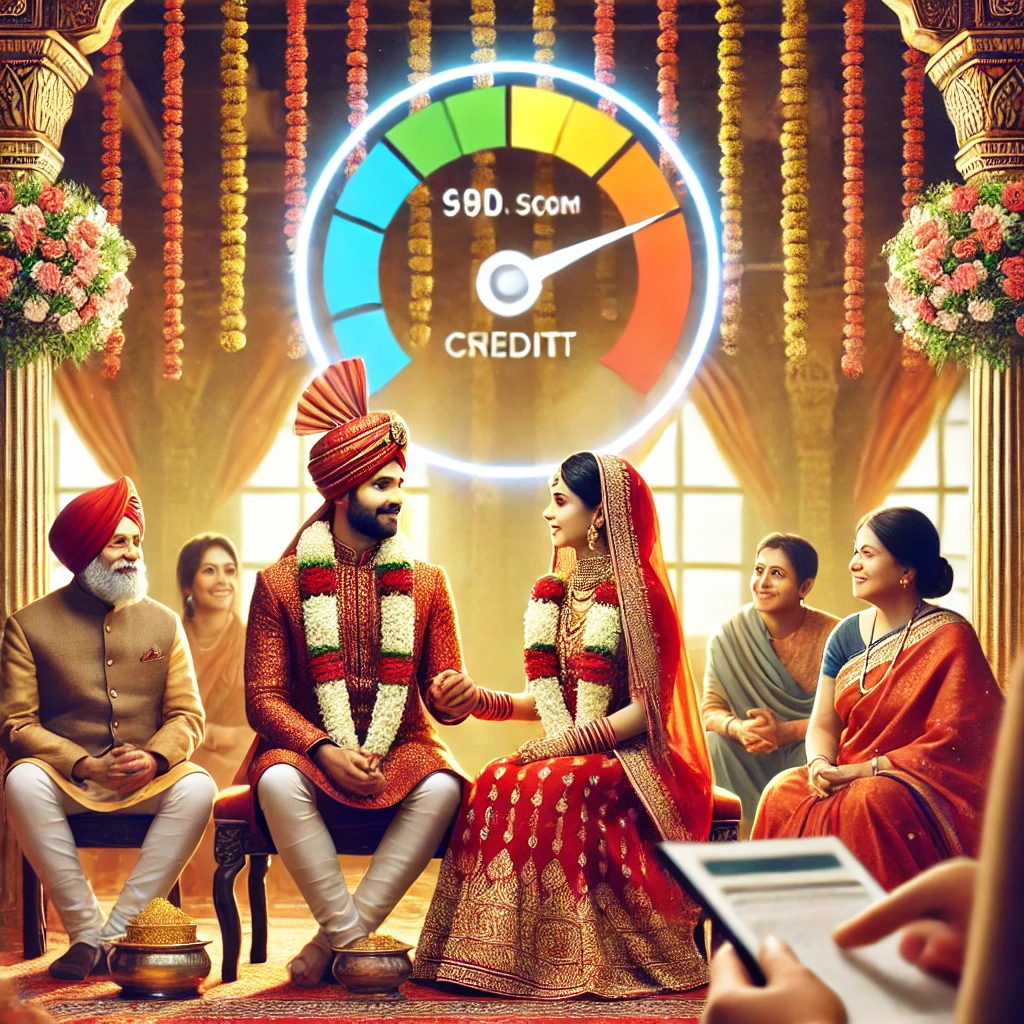Marriage represents the combination of two people with their families and mental perspectives. The growing trend towards modern financial stability has moved to center stage in arranged marriage selection practices in our present technological era. The bride’s family of Murtizapur, Maharashtra denied accepting the groom because of his poor CIBIL score status.
The Role of Financial Stability in Marriage
Traditional arranged marriage families base their match selection on important criteria such as religion and education level as well as caste and employment stability. The selection of prospective partners increasingly uses financial stability as one of the fundamental qualifying attributes. A bride’s uncle prevented a wedding when he sought and discovered a poor CIBIL score of the groom who was supposed to marry his niece.
Why Was the Groom Rejected?
The prospective groom faced rejection because his financial details revealed unsatisfactory points to the bride’s family through her uncle. Once the man received his CIBIL score results he learned that his suitor had acquired numerous loans and displayed a bad credit profile. When the bride’s family discovered his poor financial condition through the CIBIL score which indicated payment irregularities and financial instability they chose to cancel the marriage proposal.
How Can I Check My CIBIL Score Myself?
If you want to avoid such a situation, regularly checking your CIBIL score is crucial. Here’s how you can do it:
- Customers can view their CIBIL score through the official website at https://www.cibil.com/. Alternatively they can check their score through financial service providers that include banks as well as fintech platforms.
- PAN card information and mobile number together with your personal information enable you to register on the site.
- The system requires you to confirm your identity by entering an OTP that arrives through text message.
- Review your CIBIL report while observing your credit score values.
Your regular CIBIL score checks enable financial awareness which allows you to enhance your score before taking out loans or starting marriage discussions.
How Can I Calculate My CIBIL Score?
CIBIL scores are calculated based on several factors, including:
- Credit History (30-35%) – Your past credit behavior, including timely loan repayments and credit card bills.
- Credit Utilization (25-30%) – The percentage of your credit limit that you use.
- Length of Credit History (15-20%) – The duration of your credit activity.
- Credit Mix (10-15%) – The diversity of your credit, such as loans, credit cards, and EMIs.
- New Credit Inquiries (5-10%) – The number of times you’ve applied for loans or credit cards recently.
Maintaining a good credit history and avoiding unnecessary credit inquiries can positively impact your CIBIL score.
How to Get an 800 CIBIL Score?
An 800+ CIBIL score is considered excellent and can help you secure loans with low interest rates. Here’s how you can achieve it:
- Pay Bills on Time – Make payments for credit cards EMIs and loans at their due dates.
- Maintain a Low Credit Utilization Ratio – The ratio of your credit usage to limit must remain under 30% to maintain a positive effect.
- Diversify Your Credit Portfolio – Secure credit along with unsecure credit creates a better CIBIL score through credit portfolio diversity.
- Avoid Multiple Loan Applications – Keeping your credit score stable depends on avoiding multiple applications for loans since too many credit inquiries bring a decrease in your score rating.
- Monitor Your Credit Report Regularly – Review your credit report frequently to spot and resolve any wrong entries in your file.
Conclusion
Financial stability has become an essential criterion during marriage arrangements so a groom recently faced rejection because of his poor CIBIL score. The requirement of a good CIBIL score exists for both marriage and loan applications. Checking your credit score regularly in combination with credit score improvement allows you to be financially ready for major decisions which lie ahead.
